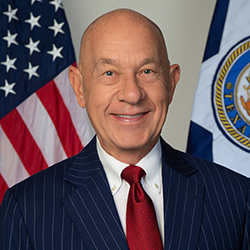I have three things to say about this.
Members of the local Democratic party in rural, bright red Fayette County were thrilled this month when they learned their hours of phone banking and fundraising would finally pay off.
The party’s record $9,000 haul was more than enough to fund a large billboard for Vice President Kamala Harris along Highway 71, the well-trafficked road that connects Houston to Austin, party chair Mary Wolf said.
But their excitement was short-lived. Just two days after the ad went up, SignAd, the Houston-based billboard company, reached out to party volunteer Becky Schenker to say the landowner had received threats and complaints. It had to come down.
“I said, ‘Well now you know what it’s like to be a Democrat in this county,’” Schenker recalled of the conversation. “Our goal in this advertising campaign is largely to make the point that Democrats do exist in our county and we are here and we do not want to be intimidated.”
SignAd did not respond to a request for comment. John Ewald, owner of the Kubota farm equipment dealership that leases land to the billboard company, said in an email Wednesday that the business did not receive any threats but did receive “calls from customers asking why we were endorsing one candidate over another.”
The billboard is roughly the same height as Kubota’s sign and stands parallel just several yards away.
[…]
The county’s Democratic party picked the billboard on Kubota’s lot in La Grange for its large size and prominent position over a major roadway. It cost $2,500. The ad went up Oct. 14 and they hoped to run it through election day.
When Schenker spoke with SignAd a few days later, she said the company representative offered her two choices. The same ad could be relocated to a billboard in a different location or the contract would be voided and the money returned.
Moving it was off the table, Schenker said. “The party is trying to make the point that we are here and you cannot intimidate us, so moving the sign to somewhere else smaller and less prominent doesn’t make the point we want to make.”
She said she hadn’t yet responded to SignAd with a decision when a member drove by the billboard on Oct. 23 and reported that the party’s ad had been taken down. Wolf called the SignAd representative, who informed her the company had canceled the contract and mailed a refund.
The party has asked the Texas Democratic Party and its lawyers for guidance on whether there might be any recourse.
In this situation, “there could be a breach of contract issue depending on the terms of any contracts entered by the involved parties,” said Aaron Terr, a lawyer and director of public advocacy at the Foundation for Individual Rights and Expression. “But generally there is no First Amendment right to speak on another’s private property.”
1. It would be nice to have some clarity about whether there were threats made to the Kubota dealership or not. We can talk all we want about civility and neighbors being neighborly and maintaining personal connections across political disagreements, but threats and intimidation are another story. The one way to reduce the prevalence of this behavior is to enforce consequences for it. That could mean law enforcement action, it could mean a civil suit, or it could mean some old fashioned naming and shaming. But first we need to know what happened, and I would hope that whatever the resources the TDP can provide here would focus on that.
2. Whether there were threatening calls or just complaints from customers, I don’t blame Kubota for wanting the sign to be taken down. I’m not going to pretend I wouldn’t be judgmental about this as a customer. I hope for the next election the Fayette County Democratic Party has some options to advertise that doesn’t depend on the consent of a public-facing business.
3. As noted, Fayette County is deep red – 78.6% to 20.6% for Trump over Biden in 2020 – and it’s also not very populous, with 12,941 votes cast there that year. But there are a lot of counties like Fayette around Texas, and while the big urban and suburban counties have been getting more Democratic, those counties – most of which were pretty red to begin with – have gotten steadily more Republican. Their sheer number – 180 counties in Texas have fewer than 50,000 people in them, and 153 have fewer than Fayette County – means their smaller gains have a significant cumulative effect. Trump won Fayette County by 6600 votes in 2016 and by 7500 in 2020, and that kind of gain was seen over and over again. Putting a brake on that, in Fayette and in the counties like it, would go a long way.
That’s way easier said than done, of course, and it will take a significant investment. But a part of that is what the Fayette County Democratic Party had figured out, that just letting people know that they’re not alone and that their voice matters makes a difference. Making whatever resources we can gather available to the local folks who can do the real work is the way to go.




/cloudfront-us-east-2.images.arcpublishing.com/reuters/5KHWYF53XBNEFLDIU4B47BZYQE.jpg)










